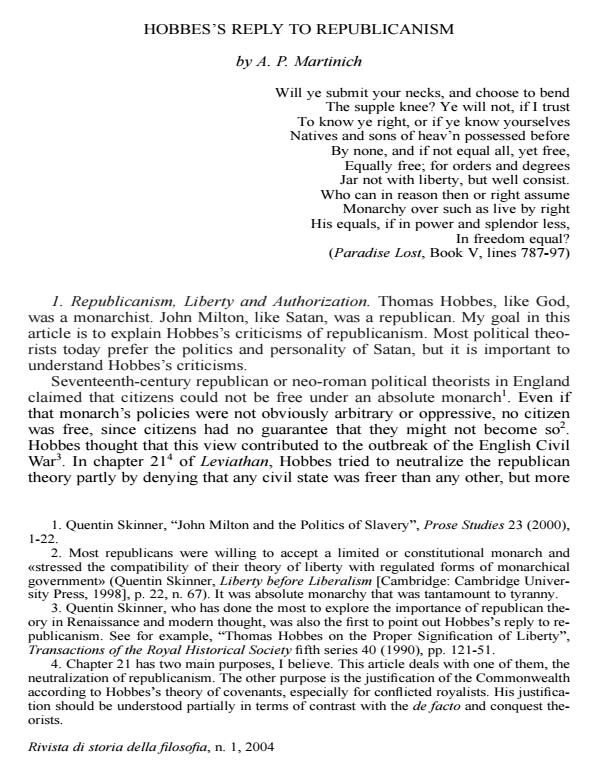Hobbes's reply to republicanism
Journal title RIVISTA DI STORIA DELLA FILOSOFIA
Author/s A. P. Martinich
Publishing Year 2004 Issue 2004/1
Language Italian Pages 13 P. File size 52 KB
DOI
DOI is like a bar code for intellectual property: to have more infomation
click here
Below, you can see the article first page
If you want to buy this article in PDF format, you can do it, following the instructions to buy download credits

FrancoAngeli is member of Publishers International Linking Association, Inc (PILA), a not-for-profit association which run the CrossRef service enabling links to and from online scholarly content.
A. P. Martinich aims at explaining Hobbes’s criticism of Republicanism. Trying to adopt a middle position between subjection and liberty, Hobbes develops a theory of natural liberty which is compatible with both fear and necessity and civil liberty. He thus defines civil liberty as the extent to which a subject is free from laws and obligations, the degree of freedom not being determined by the kind of government a citizen is obliged to. As far as the liberty of states is concerned, Hobbes establishes that there is no more liberty in the one than in the other. Martinich’s demonstration draws very much on §§ 14 and 15 of chapter 21 of Leviathan, that is, on Hobbes’s theory of political obligation, because in those paragraphs Hobbes answers the objections made by republicans to the theory of alienation which he expounded in his Elements of Law and De cive. In Leviathan, Hobbes has abandoned this former theory in seeking to generate obligation out of authorization.
A. P. Martinich, Hobbes's reply to republicanism in "RIVISTA DI STORIA DELLA FILOSOFIA" 1/2004, pp , DOI: